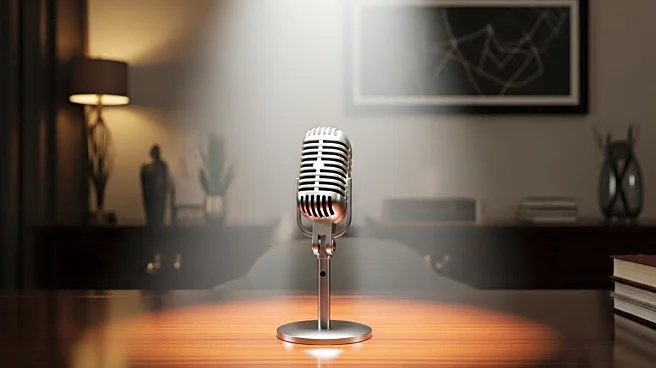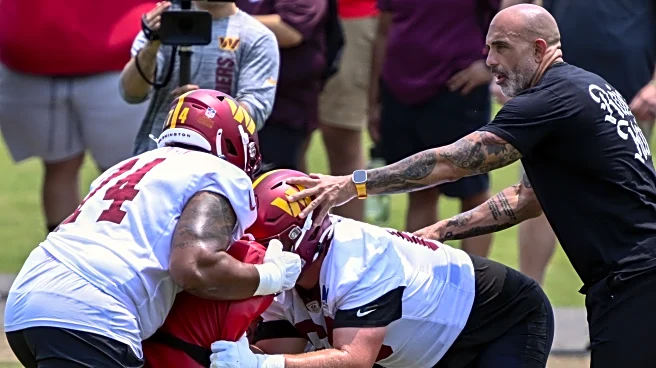What's Happening?
The suspension of Jimmy Kimmel's late-night show by ABC has ignited a national debate on free speech following the assassination of Charlie Kirk. Federal Communications Commission Chairman Brendan Carr threatened ABC with retaliation over comments made by Kimmel during a monologue. President Trump has expressed support for the suspension, suggesting that broadcasters allowing criticism of him should potentially lose their licenses. The FCC holds significant power, including jurisdiction over mergers and the ability to fine stations and pull broadcast licenses. However, a Democratic FCC member stated that Carr cannot pull a license simply because the administration dislikes a joke or criticism.
Why It's Important?
This development highlights the ongoing tension between government authority and free speech rights in the U.S. The use of government power to influence media content raises concerns about the potential erosion of First Amendment protections. Broadcasters and media companies may face increased pressure to self-censor to avoid government retaliation, impacting the diversity of viewpoints available to the public. The situation underscores the delicate balance between regulatory oversight and the protection of free speech, with implications for media freedom and democratic discourse.
What's Next?
The FCC's actions and President Trump's statements may prompt further legal and public scrutiny regarding the limits of government intervention in media content. Media companies and civil rights organizations are likely to challenge any attempts to curtail free speech through regulatory means. The broader implications for media freedom and the precedent set by this case could influence future interactions between government entities and media organizations.
Beyond the Headlines
The debate over free speech in media is part of a larger conversation about the role of government in regulating content and the potential consequences for democratic principles. The situation may lead to discussions about the ethical responsibilities of media companies in balancing criticism and compliance with regulatory demands. Long-term shifts in media practices and public perception of government influence on free speech could emerge from this controversy.










